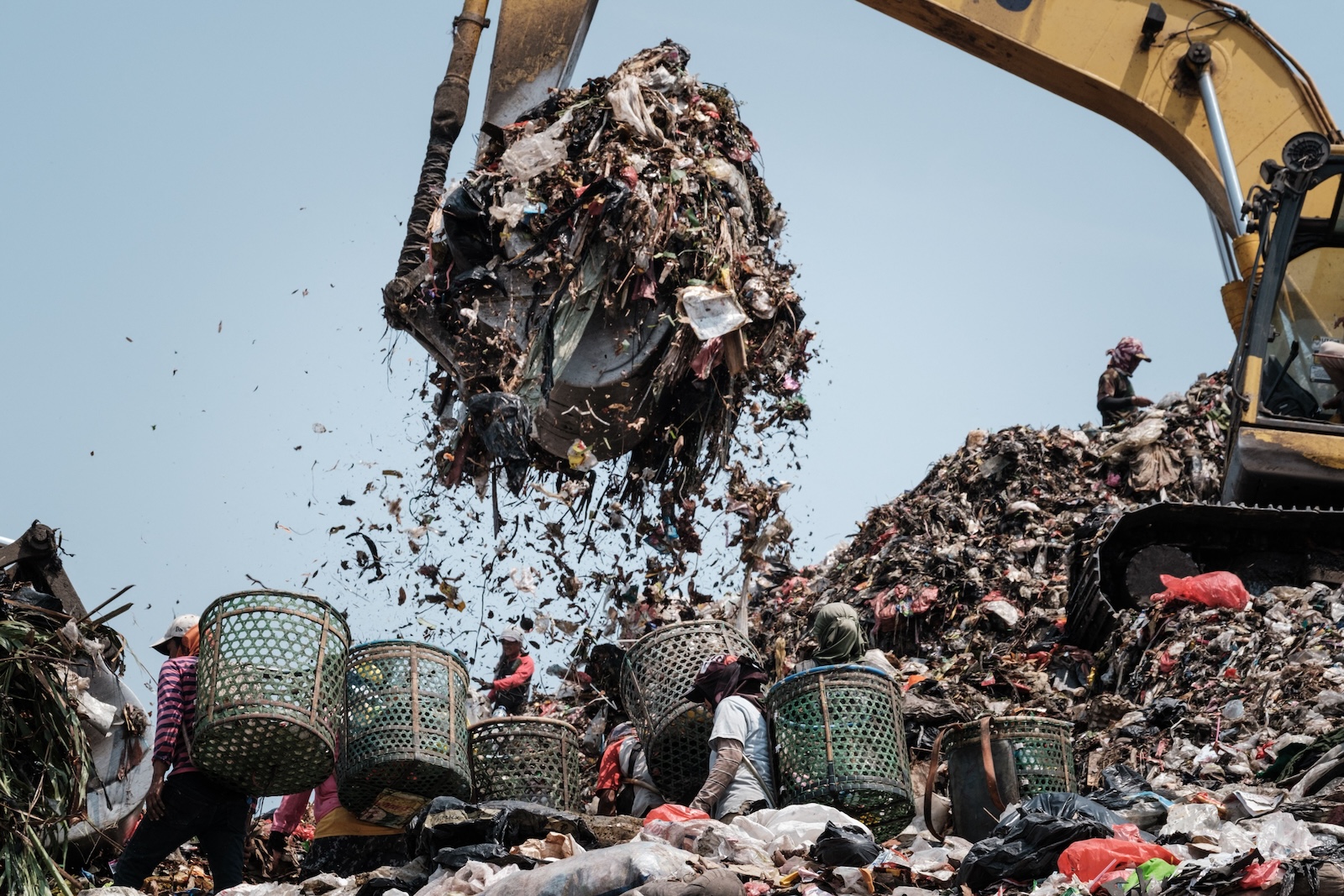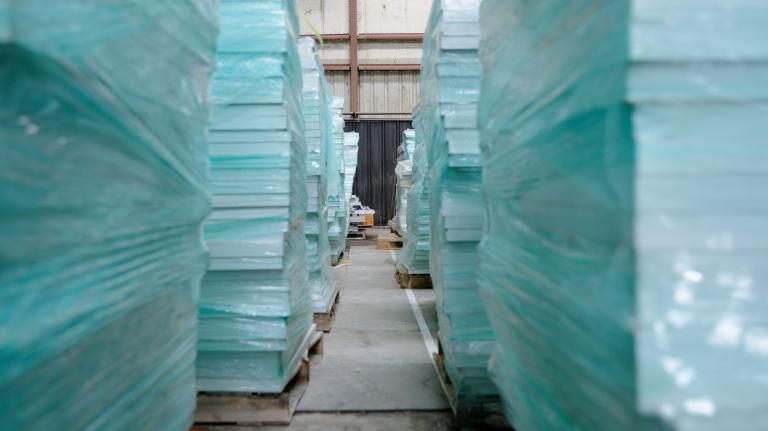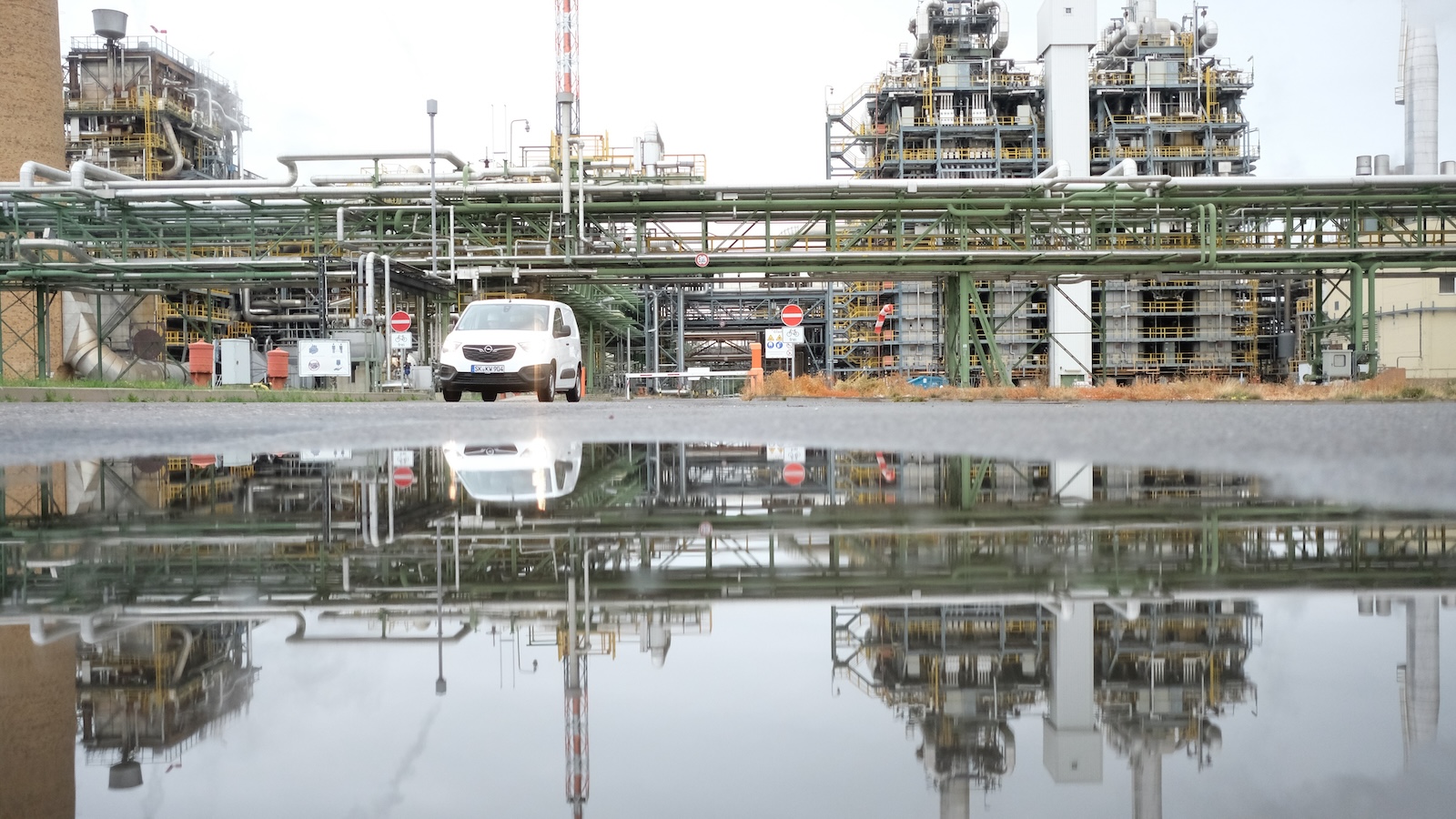As petrochemical companies continue to inundate the world with cheap plastic products and packaging — much of which is designed to be used once and then thrown away — they’ve been heavily promoting one solution called “chemical recycling.”
This catch-all term refers to processes and technologies that break plastics into their molecular building blocks and turn them into new products. In theory, chemical recycling is a promising way to deal with so-called “hard-to-recycle” plastics like wrappers and bags, which can’t be recycled using conventional methods.
But a new report from the nonprofits Beyond Plastics and the International Pollutants Elimination Network, or IPEN, says chemical recycling is a “dangerous deception” that will only exacerbate pollution and environmental injustice while failing to address the plastics crisis.
“The landscape of chemical recycling is littered with pollution and failure,” and relying on it is an “unreliable and polluting approach” to resolve the global plastics crisis, Jennifer Congdon, Beyond Plastics’ deputy director, told journalists at a press conference on Tuesday. She and the report co-authors called on President Joe Biden to place a national moratorium on new chemical recycling operations in the U.S. and urged international negotiators to disavow the process as part of the global plastics treaty that will be discussed during a third round of negotiations in Nairobi later this month.
Beyond Plastics and IPEN’s 159-page report begins with an overview of the plastic pollution crisis and companies’ “undeniable” failure to address it through conventional recycling methods. According to the Department of Energy, the U.S. plastics recycling rate is still only about 5 percent, despite decades spent trying to scale it up.
Notably, this view is supported in a foreword by Lewis Freeman, former vice president of government affairs for the Society of the Plastics Industry — a major lobbying group that in 2016 changed its name to the Plastics Industry Association. According to Freeman, the plastics industry has long known that recycling “couldn’t realistically manage a significant amount of plastic waste,” but has “spent millions of dollars convincing the public otherwise.” Freeman implies that chemical recycling is an extension of this deception and raises doubts that it will contribute to an industry target of “reusing, recycling or recovering 100 percent of plastic packaging in the U.S. by 2040.”
The Plastics Industry Association did not respond to Grist’s request for comment.
To assess the state of chemical recycling in the United States, Beyond Plastics and IPEN looked at the country’s 11 chemical recycling facilities and found that only three are dedicated exclusively to producing feedstocks for new plastic products; the rest produce fuel to be burned, sometimes in combination with chemicals for industrial use. Four facilities are registered with the Environmental Protection Agency as generators of hazardous waste, and seven of them are located in areas where there is a higher-than-average concentration of people of color. This trend aligns with a pattern of environmental injustice within the plastics industry, which has concentrated pollution-intensive plastic production facilities near Black and low-income communities in Louisiana, Texas, and Pennsylvania.
Meanwhile, the report finds that most of the facilities are working only at a “pilot” or “demonstration” scale and not at full capacity, despite efforts dating back to the 1980s to scale up chemical recycling technologies. Even if these 11 facilities were processing as much plastic as they say they can, Beyond Plastics and IPEN estimate they would only go through 460,000 metric tons of plastic waste per year — less than 1.3 percent of the amount generated in the U.S. annually.

These findings are consistent with those of other nonprofits and media outlets. A 2021 Reuters investigation, for example, found that 30 chemical recycling projects announced by 24 companies were either “still operating on a modest scale” or had closed down, while more than half were years behind schedule. A more recent investigation into one facility in North Carolina found that much of the plastic it processed was disposed of as toxic waste, despite advertisements claiming it to be an environmental success story.
“The only thing actually being recycled is the myth that recycling will solve the plastic pollution crisis,” the new report says. It raises concern about a spate of state-level laws backed by the American Chemistry Council, an industry lobbying group, to promote chemical recycling, including by loosening air emissions controls and eliminating monitoring requirements. At least 20 states have passed such deregulation laws.
The American Chemistry Council did not respond to Grist’s request for comment.
A spokesperson for Alterra, which operates a chemical recycling facility in Akron, Ohio, said the report was “riddled with many misleading and erroneous conclusions” and specifically described as “defamatory” the claim that its facility was nearing the limits of its air emissions permit while operating at below full capacity. The company said Beyond Plastics “conveniently ignored” publicly available documents from a local air quality regulator showing that its facility’s emissions are “significantly below the limits of the air emissions permit.”
Beyond Plastics said Alterra’s criticism was “not based on fact,” and that the documents the company provided do not negate previous findings showing that its facility had nearly violated its air emissions permit, and that the Ohio EPA decided on two occasions not to take enforcement action against it. “We stand by our report,” said Judith Enck, Beyond Plastics’ president and a former regional administrator for the EPA.
Another operator, Nexus Circular, sent Grist snippets of its website’s FAQ page describing the chemical recycling process, and a third, ExxonMobil, said chemical recycling was a “proven, scalable technology to turn plastic waste that would otherwise go to landfill or incineration into valuable new products.” PureCycle, which runs a polypropylene purification plant in Ironton, Ohio, disputed Beyond Plastics’ characterization of the plant’s processes as chemical recycling.
Six of the other seven companies whose chemical recycling facilities are named in the new report did not respond to Grist’s request for comment. Prima America Corporation, which operates a chemical recycling facility in New Hampshire, could not be reached because it does not have a website or a publicly listed phone number.
To stop greenwashing and prevent chemical recycling from further harming low-income communities and communities of color, Beyond Plastics and IPEN call for Biden to declare a moratorium on all new chemical recycling plants, a step that environmental groups have previously suggested the president can take without congressional approval. They also recommended that all existing facilities be subject to “full environmental impact assessments” from the EPA. All federal, state, and local subsidies and incentives for chemical recycling should be ended, the authors said, and no projects that turn plastic into fuel should be allowed.
On the international stage, countries are in the midst of negotiating a historic treaty on plastics. There’s nothing in the treaty yet about chemical recycling — it’s still a very rough draft — but Beyond Plastics and IPEN say it’s critical that negotiators fight for language that explicitly labels it an illegitimate solution to the plastic pollution crisis, potentially by classifying it as “waste incineration” rather than recycling, or by blocking it from counting toward mandatory recycling targets. The third round of negotiations is scheduled to begin on November 13, with the final treaty due by the end of next year.
“We do not want the treaty negotiators — or legislators or regulators — to be distracted by the false solution of chemical recycling,” Enck told journalists on Tuesday. Instead, she urged them to consider the simpler strategy of significantly reducing plastic production.
This story has been updated to include Beyond Plastics’ response to Alterra’s criticism of the report, as well as additional comments from PureCycle.
*Correction: A previous version of this article incorrectly stated that all, rather than most, of the facilities named by Beyond Plastics are operating at a pilot or demonstration scale.




